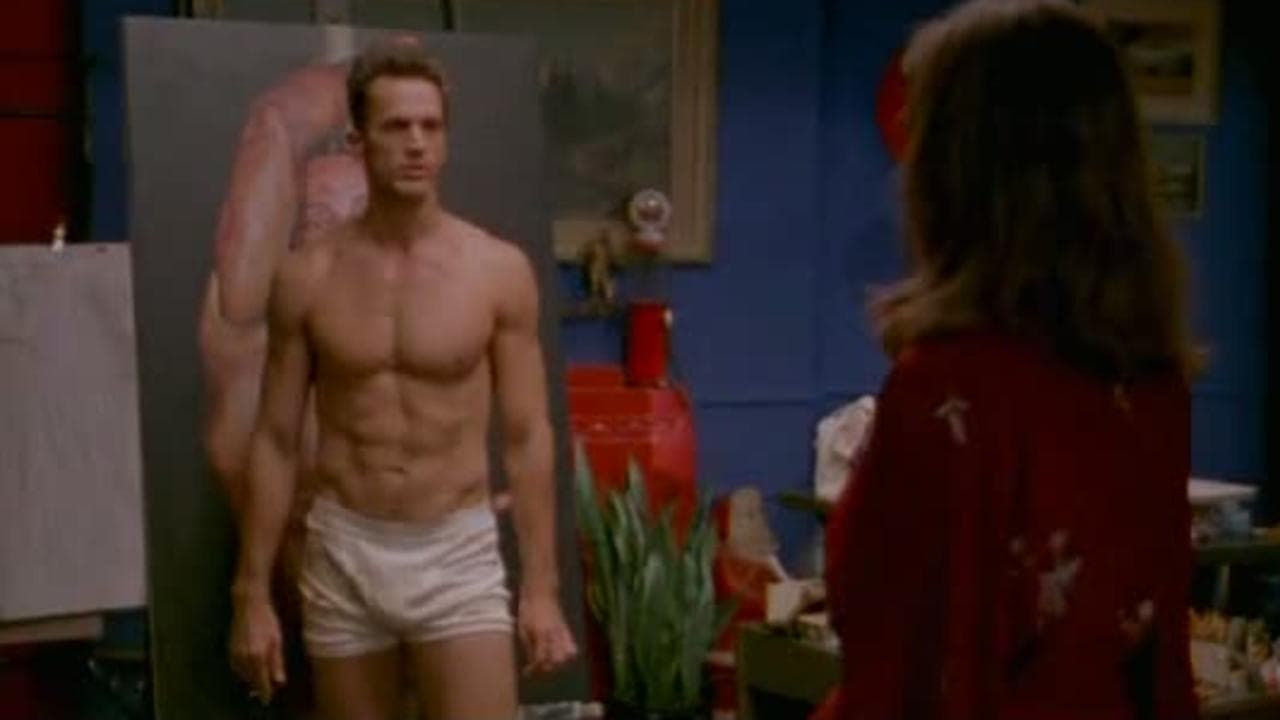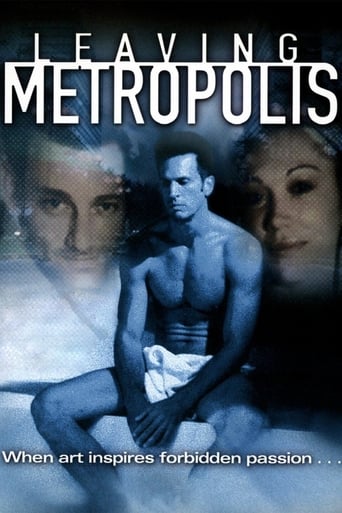

Leaving Metropolis recalled from the far reaches of my mind lines from the 1816 Lord Byron poem, When We Two Parted: In secret we met--In silence I grieve,That thy heart could forget,Thy spirit deceive.If I should meet theeAfter long years,How should I greet thee?With silence and tears.This entertaining film is well-acted, intelligently-written and directed with great sensitivity. But it hit too close to home for comfort, which is perhaps one reason why I liked it. The story never over-reaches. The character arcs, as in all good stories, propel the plot forward building ever-increasing tension that is all the more palpable for its exquisite subtlety. Typically, the denouement in most gay-theme films either lacks credibility or is utterly predictable. Neither is the case with this exceptional film. When the lights come down and ninety minutes of screen time pass like five, when one is uplifted for having met the characters but saddened for having to depart from them too soon, when one experiences pathos and ethos in measure enough for an honest cathartic moment--that, for me, marks a worthwhile, captivating, artful film. Bravo! Bravo!
... View MoreFrom the description in the television guide, I wasn't sure if I'd like this one. But, thanks to 'Here!' channel, I got to see it uninterrupted and found it to be a super film ... a very insightful story of very believable characters by an extremely talented, perfectly-cast, fascinating group of actors(none of whom I have ever seen before, but hope to see often). Of course, the brilliant author/director had 'something to do with it'. I found each character to be fully drawn and could identify with each of them ... something I don't see often in films.I want to see more about these people. Thank you all for sharing with us.Please, folks, do not hesitate to dive into this one with both feet and your whole heart.
... View MoreWhat a great line. I had never heard of the stage play, "Poor Superman," but, I wasn't one bit surprised to find at the ending credits that this was a film based on a play, and that the original playwright had penned the screenplay.I haven't read the other comments on here, and really don't have to--but, I am shocked at the user rating. I thought this was a wonderful movie that I picked up out of the "GAY" section of our local video rental chain. I "try" gay films. In essence, I watch for about 20 minutes, and if the acting is horrible and the plot is inconceivable, I generally stop it and move on. I thought this movie was wonderful--plain and simple. The script wasn't far fetched, the situations weren't forced, and even though I tried like hell to predict where it was going, I couldn't. I kept waiting for it to disappoint me, and it didn't. The natural flow of the film is unlike any other "indy gay flick" you've ever seen. I found all the characters believable, with some of the best dialogue I've heard in a while. As a playwright, I was totally engaged, and would recommend it to anyone who asked me for my opinion.
... View MoreThis film is basically a gay love triangle. David is a famous painter with "painter's block." He has a live-in, HIV-positive, pre-op transsexual black live-in friend, Shannon. He has a famous-newspaper-columnist fag-hag friend, Kryla. To get his muse back, David decides to become a waiter again. He ends up waiting tables at a small diner owned by Matt and Violet, a married couple (recently married? it's not clear). David is immediately attracted to Matt. Soon, as David encourages Matt's secret talent for drawing comic-book characters and boosting Matt's self-esteem, Matt begins to fall for David. David then paints a series of erotic images of Matt. The film ends predictably enough: Lots of tragedy (divorce, death, friends falling out, etc.) but also a "hopeful ending" (everyone starts over anew). Vincent Corazza as Matt is perhaps the best thing about this film. His physical presence (someone ice me down!) is almost charismatic. But his acting skills are exceedingly strong. He acts with his body, his face, and his voice and makes Matt's confusion about his love for Violet and David believable and moving. Cherilee Taylor as Violet is less effective, although this is probably due to the lack of character development the script gives her to work with. The most telling moment in the film is when she tells a reporter that she collects "wedding couple" dolls. While this has obvious implications and meaning for her character, this is hardly what one would consider "deep characterization." Most of the time, Violet is simply supposed to look dumbly confused by Matt's refusal to spend time with her (while he's off doing the nasty with David). Taylor's effectiveness as an actress comes out best in her final scene, as she confronts her ex-husband outside the art gallery where David's paintings of Matt are shown. The anguish, honesty and intensity of her skills are on display best here. Troy Ruptash as David and Lynda Boyd as Kryla are the film's weakest links. Ruptash is simply unconvincing as the steely-hearted David (the man so traumatized by the deaths of his many friends to AIDS that he cannot love). He fails to carry off the campy/bitchy/queenie comments his character is given, and his confidence in every scene makes it difficult to believe the character is really blocked or that the character is suffering an emotional tempest beneath the locked-down surface. Boyd's biggest problem is that she is given not much more than a caricature to work with -- the tough-as-nails newspaper columnist who can't find love. Kim Cattrall on "Sex and the City" does this a hundred times better. Perhaps the biggest problem with "Leaving Metropolis" is the script and editing. The dialogue is stilted and unnatural, the scenes are truncated and missing sections (due to sloppy editing or bad writing is hard to tell), there is much exposition and characterization missing, and time seems to pass without any visual or verbal clues being given until it's too late. The film's conclusion -- especially the scenes with David in the bath house, Shannon's death-scene, and David pouring Shannon's ashes over the streets of Winnipeg -- seem pointless and serve to drag down the film's momentum. The final scenes themselves (Violet carrying on at the diner, David packing up to move and reconciling with Kryla, Matt at the train station) seem maudlin and uninspired....even trite. The film's editing seems clumsy and clunky. There is little style or point to the cuts that are made. Even simple editing choices like "jump cut or match-on-action" seem to occur randomly rather than with purpose. (True, copyright problems forced director-writer Fraser to cut out most references to Superman, the film's primary cultural reference and main metaphor. This creates blatant holes in the film, which are not present in the stage version, "Poor Superman.") None of this is to suggest that "Leaving Metropolis" is a bad film. In fact, for all its faults, the film still works. There is a certain fascination with Matt's internal debate over his own sexuality, his love for Violet and David, and whether to tell Violet about his affair. Kryla's initial complaints (that David is simply a homewrecker) seem just bitchy at first, but take on a poignancy and morality that is shocking (and surprising, perhaps, to gay audiences that might not prize marriage or monogamy) by the film's end. The plot works itself out fairly predictably, which is unfortunate given the complex issues it presents. Two final notes: First, the soundtrack is goofily "WB" -- too much guitar-driven lesbian-rock or oddly-chosen hard-rock (a la the old Canadian band, Rush). Second, there is a fair amount of nudity -- both male and female, heterosexual and homosexual. The film actually could have done without it, but to my mind it's a nice plus given Corazza's fantastic body.
... View More